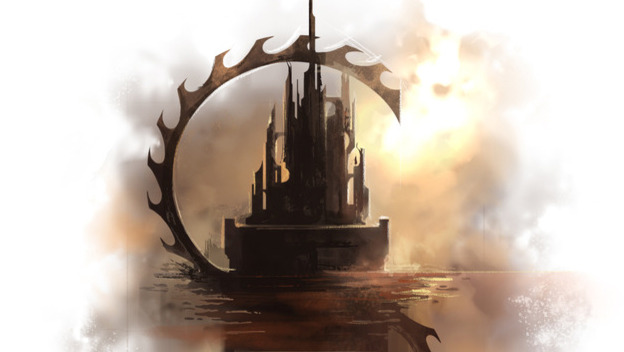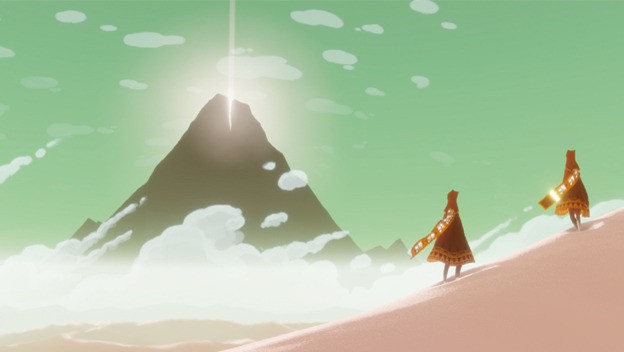Independence means never having to say you’re sorry…for buying my game.
I wish I could tell you I was more of a refined, sophisticated gamer. The type you would find in the gaming world that really appreciates the art and innovations of the indie community. There are those who revere the independent gaming scene as where the true nature of creativity and art is found these days, rather than in the titles released by the larger, corporate structure of the mainstream game companies. These days, it’s almost as if you’re not in the “know” unless you’re hip to the independent scene. I wish I could tell you I was, but frankly, I’m not sure of the last time I actually played an indie title. Often times, when lurking on gaming forums, I come across these types of conversations. I’d like to contribute, but I just feel like that guy at a fancy party where the aristocrats are fawning over their latest wine and cheese selection while I munch on my dollar-menu cheeseburger from McDees. I mean, I see the indie section on Xbox Live all the time. I intend to go there and play some of the awesome titles that have become so popular, but somehow, I never get around to it.
As this chapter of the current-gen is coming to a close and we prepare to start a new, I think it’s important not to overlook the huge contributions that the Xbox 360 and PlayStation 3 have opened up to the world of the independent gaming.
Much of the news that came out of the 2013 E3 did not necessarily paint Microsoft and its Xbox One console in a very favorable light. One of the most distressing bits of info for those in the Indie community was Microsoft’s plan to not allow anyone to self-publish their works, but instead requiring them to get some type of licensing agreement through a third-party company. An odd move, it seems, in light of the fact the Xbox 360 provided one of the larger platforms for independent game developers to come in and get their works seen by the public. It allowed those who felt they had the ability to create and distribute a quality game to reach the public directly via the online community and let them decide its success based on the merits of the game, without the red tape of going through a major developer.
Since then, with the huge response it received from the gaming community, Microsoft has had to shift its stance on many of these issues…which is just a nice way of saying it backpedaled. Microsoft’s Corporate VP Phil Harrison recently stated that it’s not realistic to expect Indie games at launch, but we can instead expect to see them sometime by early 2014 . This is on the heels of Microsoft announcing its “Independent Developers @ Xbox initiative,” a program geared toward the promotion of indie development on its console. Cleary a stark contrast to its message it was sending just a few short months ago that seemed to put it at odds with the indie community. Understandably, Microsoft wants some type of quality control when it comes to the games it sees coming to its platform. It’s easy to see how the market can become oversaturated with mediocre or useless titles that simply clutter the way for the real gems waiting to be found (I’m looking at you, Apple Store).
I recently saw a great documentary on Netflix entitled Indie Game: The Movie by Canadian filmmakers James Swirsky and Lisanne Pajot. It chronicles the struggles of two independent games (and more importantly their developers), and the toll it can take on one’s personal life, not to mention one’s sanity. While both games ( Super Meat Boy and FEZ ) have since gone on to become huge successes online, that’s not the most poignant point I took away from this film. Phil Fish, creator of FEZ, cancelled its sequel and has since quit the indie scene. After several big online blow-ups with various gaming journalists, it’s easy to see how the trials and tribulations of just trying to make it to the finish line weighed on him heavily. In the film, when asked what would happen if he couldn’t get his game released, he replied, “I would kill myself.” Now that’s a pretty definitive statement, all due to some gaming code not quite working properly.

This has led me to two conclusions. The first is regarding why, after knowing how much artistic and creative sensibility go into a typical indie title, why have I yet to play one? Is it because that when it comes time to spend my gaming dollars I’m looking for all the frills and packaging that I know comes with a well-polished studio release? I honestly can’t answer that.
The second conclusion, I think, is much clearer. It seems that with one hand, Microsoft and Sony encourage the development of indie games, yet with the other, they make some of the hurdles and obstacles so high to climb, it is almost an insurmountable achievement to accomplish. Are the higher ups really doing all they can to make sure the indie scene is operating on a level playing field and thrives, or are they just more concerned with the appearance of doing so?
What I do know is this…I just powered on my Xbox and I’m flipping through the indie titles right now. When I’m done writing this article, I’m going to have some fun.
